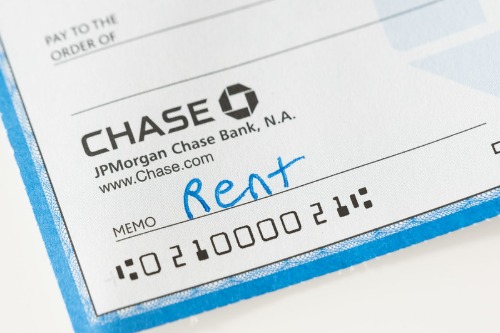1. Not drinking alcohol (or going sober-curious)

Alcohol is so normalized in American social life that turning down a drink can spark interrogation. People assume you had “a problem,” you’re pregnant, or you’re being a buzzkill, rather than simply making a health or preference choice. Meanwhile, alcohol-related health risks are well documented, and younger cohorts in particular are rethinking their relationship with booze. It makes the list because even a perfectly legal, socially acceptable “no” still gets policed.
There’s also a marketing machine and a hospitality culture built around drinking, from bottomless brunches to happy hours. When you opt out, you’re implicitly opting out of a lot of shared rituals, which can make others uncomfortable. The good news is the rise of alcohol-free bars and zero-proof menus is giving people more options. The bad news is you still have to explain yourself way more than someone ordering their third round.
2. Choosing to be childfree

Plenty of Americans are openly deciding not to have kids, but you’ll still hear “You’ll change your mind” at every family gathering. Birth rates have been trending downward for years, yet the social script still assumes parenthood is the default. That mismatch is exactly why it gets judged so hard: it pushes against a long-held norm about what adulthood should look like. Surveys keep finding a growing share of adults saying they don’t plan to have children, which makes the backlash feel even more out of step.
People also read this choice as selfish or short-sighted, instead of a thoughtful calculation about money, time, health, or climate concerns. That framing ignores how expensive childcare is, how little paid leave most workers get, and how many people are prioritizing other forms of meaning. Older relatives often treat the decision as a critique of their own life paths, which can crank up the defensiveness. So the judgment sticks, even as the numbers and practical realities keep moving the other way.
3. Renting long-term instead of buying a home

Homeownership has been sold as the American Dream for generations, so choosing to rent indefinitely can raise eyebrows. Even with high prices, low inventory, and big interest rates, people still hear, “You’re throwing money away.” The reality is that for many, renting provides flexibility, lower surprise costs, and access to neighborhoods they couldn’t otherwise afford. It’s on this list because the cultural story hasn’t evolved as quickly as the housing math has.
Critics also ignore that mobility can be a financial strategy—chasing jobs, avoiding major repairs, or skipping property-tax shocks. Plus, diversifying investments outside of a single house can be smarter for some risk profiles. Yet cocktail-party conversations still treat a mortgage as a maturity badge. Until the dream decouples from the deed, long-term renters will keep getting side-eyed.
4. Skipping the four-year college degree

For decades, “college = success” has been the mantra, so saying “No thanks” to a bachelor’s still gets judged. That’s despite skyrocketing tuition, massive student debt balances, and a labor market where many good jobs don’t require a four-year diploma. Apprenticeships, community colleges, certificates, and bootcamps can be faster, cheaper, and better aligned with certain careers. It’s here because the social prestige of the traditional path still outweighs the economic reality for a lot of families.
Parents worry their kids will be shut out of opportunities, and some employers still default to degree requirements. But more big companies are dropping those requirements and focusing on skills instead. The shift is happening, just unevenly, which leaves non-degree choosers constantly having to defend their plan. The judgment lingers in part because prestige narratives are slow to die.
5. Staying single on purpose

America loves a happy ending with rings and a registry, so choosing long-term singleness can trigger a lot of “But why?” comments. Median ages at first marriage have climbed, but the stigma around intentionally opting out hasn’t caught up. People still assume you’re lonely, broken, or “too picky,” instead of simply content. That’s why it makes this list: it’s a perfectly valid life design that still gets pathologized.
There’s also a financial and legal bias baked into the system that rewards marriage, from tax filing to health insurance. Those incentives quietly reinforce the idea that singleness is a temporary holding pattern, not a destination. Meanwhile, research shows social connection—not marital status—is what predicts well-being, but that nuance rarely makes it into small talk. So singles end up fielding unsolicited advice like it’s a civic duty to couple up.
6. Living with your parents as an adult

Multigenerational living is common globally and is growing again in the U.S., but it still carries the “failure to launch” stereotype. High rents, student debt, eldercare needs, and cultural preferences all factor into the decision. Still, the cultural narrative often frames it as regress, not strategy. That disconnect is exactly why it gets judged.
In reality, pooling resources can speed up savings, allow for childcare swaps, and improve everyone’s quality of life. Economic shocks like the Great Recession and the pandemic made this arrangement more visible and practical. Yet jokes about “the basement” persist, ignoring how normal this setup is becoming statistically. Until the sitcom punchlines catch up to the spreadsheets, expect the side-eye to continue.
7. Rejecting hustle culture and protecting work-life balance

Saying no to 70-hour weeks, constant side gigs, and “rise and grind” slogans can get you labeled lazy or unserious. This is despite decades of research tying overwork to burnout, health problems, and declining productivity. Younger workers especially are vocal about wanting boundaries, flexibility, and meaning. It’s judged harshly because it challenges a deeply American equation: hours in equals virtue out.
Companies talk about mental health, but promotions and praise often still go to the most visibly overworked. That mixed messaging makes boundary-setting look risky, even when it’s rational. The “quiet quitting” discourse showed how quickly choosing to meet, not exceed, expectations can be framed as a moral failing. So people who protect their nights and weekends still find themselves defending very ordinary limits.
8. Opting out of social media

Not being on the big platforms—or deleting them—invites suspicion in a world where “Send me your Insta” is standard. Folks assume you’re out of touch, hiding something, or professionally doomed. But the documented links between heavy social media use and anxiety, distraction, and misinformation give people plenty of reasons to step back. It’s on this list because even a tech-savvy, intentional opt-out is treated as weird.
There’s also a practical penalty: many social and professional events, announcements, and communities live online now. That makes the choice feel like you’re rejecting not just an app, but a whole social layer. Still, some people would rather curate their inputs, protect their privacy, and reclaim their time. The judgment sticks because opting out quietly critiques a system most people feel stuck inside.
This post 8 “Optional” Life Choices That Still Get Judged Harshly in American Culture was first published on American Charm.


